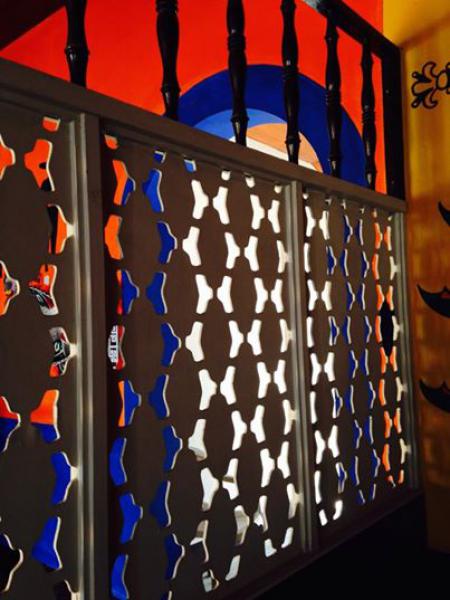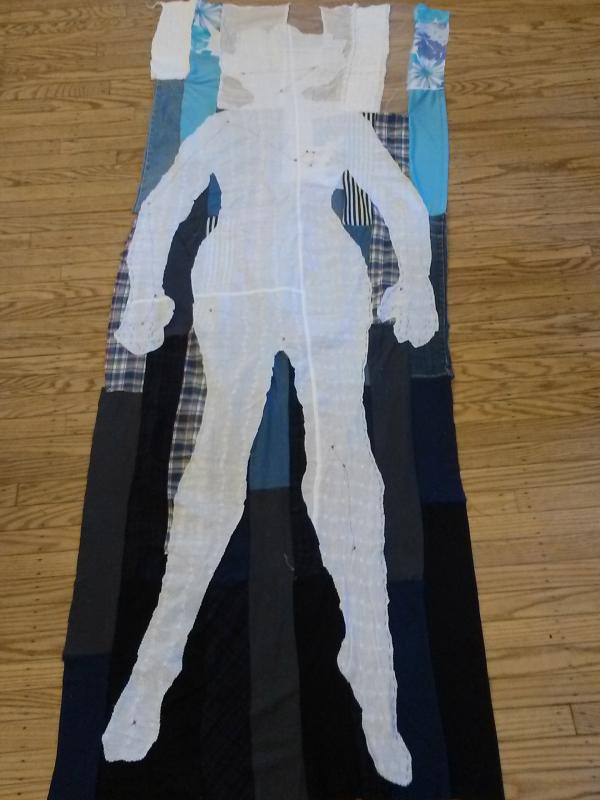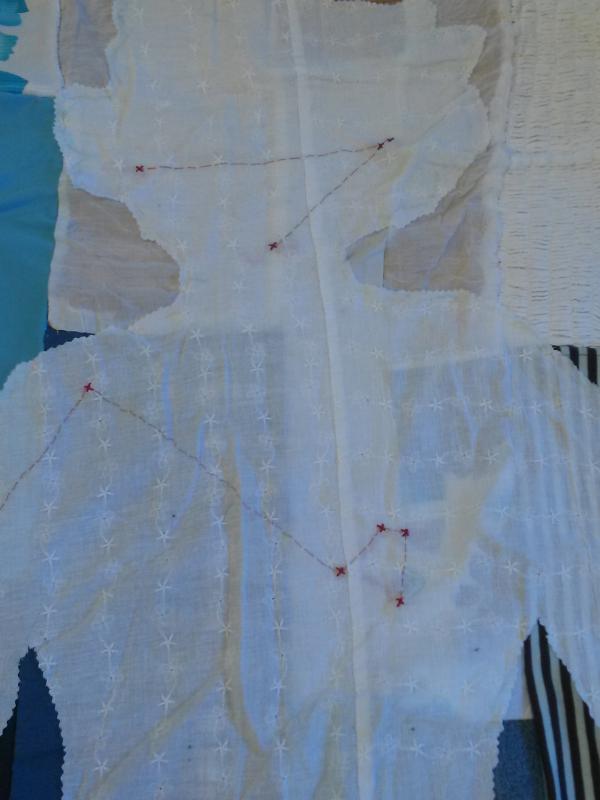Serendip is an independent site partnering with faculty at multiple colleges and universities around the world. Happy exploring!

our art gallery
We will be staging our "art gallery" in Dalton 212A on Monday @ 2:30--
just so we'll have a little more space to move around, enjoy what we are seeing...
Inquiry Proposal
For my inquiry project, I would like to focus on bilingual education for students in pre-k-kindergarten. I do not have much knowledge about bilingual education; however, doing field research at a bilingual school this semester makes me think of many challenges with bilingual education, that I want to learn more about. For example, in my placement, the teacher speaks in both English and Spanish; however, when the students move on to the next grade, the teacher will speak only English. I notice that the students respond better to Spanish, especially when they do not understand in English.
In addition to this, the students have no outside resources because many of their parents only speak Spanish. The parents ate learning with the students to recognize letters and numbers in English. My main two questions are: How can teachers better prepare students for the “English only” environment and how can teachers engage students without making them feel like they have to assimilate to the “dominant culture,” loosing a piece of themselves? I want to learn more theories behind bilingual education and expand my knowledge beyond my observations in the classroom.
Beside the Looking For / The Finding’s Always Tame: * Mining, Crafting, Writing, Thinking
Beside the Looking For / The Finding’s Always Tame: * Mining, Crafting, Writing, Thinking
* (The Loving of the Game, Pat Garvey, covered by Judy Collins)
Alice Lesnick, Bryn Mawr College
4C's March 2014, Indianapolis, Indiana
Intro.
Starting again with the essay, essayer, French for "to attempt" – TS Eliot still over there:
". . . perhaps neither gain nor loss.
For us, there is only the trying. The rest is not our business. " (East Coker, Four Quartets)
While Judy gives the soundtrack: "nothing drives a gambler, like the loving of the game."
Blah Blah Blah Risk Blah Blah Blah
Let’s go! But here --

“Chapter 1
There was a wall. It did not look important. “ (Ursula K. LeGuin, The Dispossessed)
Let the wall be the binary [here we go again]:
Structure – freedom
Engrossment – distance
Debate – difference
Play – work
Win – lose
Porous - sealed
Abstract - goncrete
Ideal - real
Specific - general
Inquiry - Bilingual, ESL programs
For my inquiry project, I'm interested in researching bilingual education programs and ESL programs. Through externships and Praxis placements, I've been able to observe different classrooms that revolved around a bilingual classroom system. One was in second grade classroom where the students' native language was Spanish and the teacher (who was Latina American and could identify with her students' backgrounds) actively used Spanish in her lessons. Another was in a middle school classroom where the students were primarily Haitian immigrants, and the teacher (of a Caucasian Jewish American background) had knowledge of French but didn't really use it in the classroom, and there appeared to be a large disconnect between her and the students.

March of the Textbook Publishers
As the college experience becomes increasingly concentrated in students' technological spaces, the vendors of digital tools become more and more prominent parts of that experience. Textbook publishers and course managment system companies vie for market space, both seeking to gain control over the market. More and more, that means vying for increased control over the learning experience.
Between the textbook publishers and the course management providers, no one company has won out as the ultimate provider of every part of the learning experience. But as the two fight it out to provide an immersive experience, they're also taking control away from someone else: faculty.
Part of the immerseive experience, after all, includes creating activities, setting learning objectives, and designing assessments -- areas that are traditionally the domain of faculty. While the deadlock between companies suggests that faculty aren't in any immediate danger of corporations seizing control over their classrooms, some universities are working to partner with their supply companies. Working with publishers and CMS companies can allow faculty to engineer flexible materials. Freedom is important to faculty, and if ceding control to technology companies endangers that, the partnerships will fall flat.
For more information, read the Chronicle of Higher Education article "Textbook Publishers Push to Provide Full Digital-Learning Experience."

Inquiry Project Proposal
I would like to investigate first generation college students for my inquiry project. I’m considering narrowing the topic to first generation college students who are 2nd generation immigrants because there are a lot of reasons why someone would be considered a “first generation” student. This was the first problem I encountered with my topic; how to define first generation. Some first generation college students are first generation because their parents never had the money for college. Some might be the first because their parents “didn’t work hard” in school when they were in high school. Some are first generation because their parents never had the opportunity (in the case of immigrant families). Each of these cases are unique and lend to individual experiences that are not shared with other first generation college student. I’ve also run into the issue of whether I’m including first generation college students who attend community college, 2 year colleges, or 4 year colleges. I believe this distinction might be important in the long run, but I’m still trying to think if it is important now. I’m most definitely sure that I will focus on the bridge between high school and college because to me, this has been the most challenging experience.
Identifying like a scientist
I would like to focus on the students who are "not math people". In particular I would like to look at how students form their educational identity and how they begin to relate to certain subjects, but more closly look at why people think that math, chemisty, etc is "not for them". This topic has come up in my Praxis 3 course,as we talked about students identifying as a scientist through certain pedagogies and progams that better fit students in learning math and sciences. I would like to look at different ways of learning enviroments and common lessons that either deter or encourgage students to pursue these field and what components are neserrary for them to stay in STEM fields, or what make them avoid them all togeather with a passive wave.

Quilt
I originally made this quilt for an art class while abroad. The theme of the class exhibition was mapping, and I decided to make that very personal and map my body. I chose the medium of quilting because my grandmother and great-grandmother both quilted and because of it's association with traditionally feminine crafting techniques. I wanted to disrupt and question traditional assumptions about feminitity – leaving the edges rough and patches unfinished.

The body on the quilt is a cut-out of my own body, and the red crosses embroidered into it mark some of my visible and invisible scars. I wanted to make visible my vulnerabilities and "flawed" spots, aspects of myself that tend to remain covered up, hidden, or silenced.


Praxis – Identity Focus Groups
My praxis placement is based on-campus, where I'm working to facilitate conversations about identity and perception of identity. The goal of the groups is to offer suggestions to the President's office to make changes on campus which will better support students from diverse backgrounds on campus. The week before break, I had the opportunity to co-facilitate a focus group for the first time, and just this week I facilitated my second group. It was a rewarding and challenging experience. I needed to figure out how to act as an engaged and active listener, while also guiding the participants to think critically about themselves, taking notes, thinking about broad themes, and coming up with follow-up questions to responses. It's a balancing act that I imagine is similar for teachers leading discussions –– who also need to recognize the themes their students are bringing up and challenge their students (and themself) to think more deeply about the content. I also have to be aware of my own positionality. Sometimes my identities overlap with those of the participants, but often they do not or they simultaneously overlap in some ways and don't in others. And even with overlap, opinions and experiences differ enormously. This experience has echoed my understanding of Ellsworth's theories on dialogue. However, it has also reinforced my belief that in spite of a necessary failure to ever entirely understand one another, dialogue with others is still important to and even necessary for knowledge building.
Inquiry Proposal--Bilingual Literacy Programs in Early Education
I want to look at bilingual literacy programs in early education (preschool and kindergarten). I’ve seen a number of approaches to literacy in early classrooms, from majority play to majority structured work on letter sounds and reading, so I’m interested in looking at the differences in programs, and especially how the programs in bilingual schools relate to the students’ and their families home practices and experiences with language. I’m interested in looking at how and which languages are privileged (or not) in these classrooms, and how this may vary depending on the teacher, the students, and the larger community. I think I would like to interview my placement teacher, who teaches at a preschool literacy program for mostly Spanish speaking kids, as well as some of the preschool and kindergarten teachers at the bilingual school I was working at last semester in Costa Rica. While I will mostly want to look at educational research from classrooms, there is also a fair amount of psychological research about the process of bilingual language development, and I’m thinking about incorporating some of that as well.


